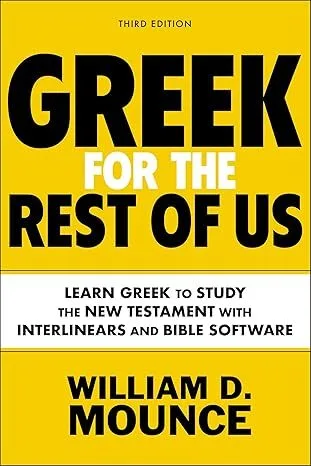Pronunciation Guide: hoop-OD-ay-mah
Quick Answer: ὑπόδημα means “sandal” or “shoe” – footwear bound under the foot with straps. This simple word carries profound theological significance in Scripture, particularly when John the Baptist declared himself unworthy to untie the Messiah’s sandal straps, revealing both divine majesty and human humility.

Key Information
ὑπόδημα

Strong’s Entry
g5266
hupodema (hoop-od’-ay-mah) n.1. something bound under the feet, i.e. a shoe or sandal[from G5265]KJV: shoe Root(s): G5265
What Does ὑπόδημα Mean?
Strong’s G5266: ὑπόδημα represents any form of footwear that is bound or fastened under the foot, primarily referring to sandals in the ancient Mediterranean world. This Greek term literally means “something bound under” and describes the simple yet essential footwear worn throughout the biblical period. The word encompasses the complete range of foot coverings from basic leather soles with thongs to more elaborate sandals worn by the wealthy. In biblical contexts, ὑπόδημα carries deep theological weight, symbolizing human dignity, social status, spiritual preparation, and divine authority. The sandal becomes a powerful metaphor for humility when John the Baptist declares himself unworthy to untie the Messiah’s sandal straps, emphasizing the infinite distance between human unworthiness and divine majesty.
Key Insight: Sandals represent the intersection of practical necessity and spiritual symbolism in Scripture.
Where Does ὑπόδημα Come From?
- Part of Speech: Neuter noun, third declension
- Root Words: ὑπό (under) + δέω (to bind) + μα (result suffix)
- Language Origin: Classical Greek, used from Homer onward
- Primary Usage: Any footwear bound to the foot with straps or laces
- Hebrew Equivalents: נַעַל (na’al) – shoe, sandal
What Is the Historical and Cultural Context of ὑπόδημα?
In Ancient Greece, the general term for sandals by the Classical Period was hypódēma (ὑπόδημα). Most forms included a strap across the toes (ζυγὸς, zygòs), another strap between the big and second toe, and a third across the instep (lingula). The ancient world’s footwear was far more than mere protection for the feet – it served as a marker of social status, cultural identity, and personal dignity.
Ancient Greek sandals varied significantly based on social class and purpose. Some Greek sandals—like the women’s tyrrēniká (τυρρηνικά)—employed wooden soles. The effeminate baxea (πάξεια, páxeia) was usually made of willow leaves, twigs, or fibers and was associated with comic actors and philosophers. The complexity and materials of one’s sandals immediately communicated their place in society.
Servant Relations and Sandal Care
The care of sandals, particularly the untying and cleaning involved in their removal, was considered among the most menial tasks in the ancient world. In those days, the roads were nothing more than dirt paths littered with animal excrement, and foot coverings were crude sandals. Given how dirty people’s feet became from walking through the dust and excrement, the job of washing someone else’s feet was considered so low that only the lowest slaves were obliged to perform it. This cultural understanding illuminates the profound humility expressed when John the Baptist declared himself unworthy even to untie the Messiah’s sandal straps.
Theological Symbolism in Footwear
The biblical scholar and expert in Judaism, Frédéric Manns of Jerusalem, stresses that the phrase “I am not worthy to loosen the thongs of his sandals must be interpreted in a juridical sense. The biblical Book of Deuteronomy (25:5-10) speaks about the levirate marriage, when the brother of a man who has died childless is encouraged to marry a widow. John the Baptist is referring specifically to the law of the levirate. The sandal is a sign of the right to marry a bride.
Historical Summary: From Homer to the New Testament, ὑπόδημα evolved from practical footwear to powerful theological symbol.
How Is ὑπόδημα Used in the Bible?
ὑπόδημα appears 10 times in the New Testament, consistently referring to sandals or shoes in contexts ranging from practical instruction to profound theological declaration. The word appears most prominently in the Gospels where John the Baptist speaks of his unworthiness regarding the Messiah’s sandals, and in Jesus’ instructions to His disciples about traveling without extra footwear.
The term carries particular weight in passages about spiritual preparation and readiness. When Jesus sends out His disciples, He instructs them regarding their sandals, emphasizing simplicity and dependence on God’s provision. In the Old Testament context, particularly in Acts, sandals represent the holy ground principle where Moses was commanded to remove his footwear before the burning bush.
—
The theological usage of ὑπόδημα reveals how everyday objects become vessels for divine truth. Accordingly, John the Baptist disclaimed any worthiness to touch even the sandals of Christ (Matt 3:11; Mark 1:7; Luke 3:16; John 1:27; Acts 13:25). Even His lowliest part was too exalted for comparison with the forerunner.
Usage Summary: ὑπόδημα appears primarily in contexts of humility, preparation, and recognition of divine authority.
- Matthew 3:11 – “I indeed baptize you with water unto repentance, but He who is coming after me is mightier than I, whose sandals [ὑποδήματα] I am not worthy to carry”
- Matthew 10:10 – “Nor bag for your journey, nor two tunics, nor sandals [ὑποδήματα], nor staffs; for a worker is worthy of his food”
- Mark 1:7 – “And he preached, saying, ‘There comes One after me who is mightier than I, whose sandal [ὑποδήματος] strap I am not worthy to stoop down and loose’”
- Luke 3:16 – “John answered, saying to all, ‘I indeed baptize you with water; but One mightier than I is coming, whose sandal [ὑποδήματος] strap I am not worthy to loose’”
- Luke 15:22 – “But the father said to his servants, ‘Bring out the best robe and put it on him, and put a ring on his hand and sandals [ὑποδήματα] on his feet’”
- John 1:27 – “It is He who, coming after me, is preferred before me, whose sandal [ὑποδήματος] strap I am not worthy to loose”
- Acts 13:25 – “And as John was finishing his course, he said, ‘Who do you think I am? I am not He. But behold, there comes One after me, the sandals [ὑπόδημα] of whose feet I am not worthy to loose’”
How Should ὑπόδημα Be Translated?
Translation Tip: Context determines whether to emphasize the practical aspect (shoe/footwear) or symbolic meaning (sandal).
ὑπόδημα Translation Options:
| Translation | Context | Reasoning |
|---|---|---|
| “sandal” | Formal/ceremonial contexts | Emphasizes the specific ancient footwear type with straps |
| “shoe” | General references | Broader term that includes various foot coverings |
| “footwear” | Collective/plural usage | Encompasses the complete category without specificity |
| “sandal strap” | When referring to laces | Focuses on the binding mechanism rather than the sandal itself |
What Does ὑπόδημα Teach Us About God?
The humble sandal reveals profound truths about יהוה’s character and His relationship with humanity. Through John the Baptist’s declaration of unworthiness to untie the Messiah’s sandal straps, we glimpse the infinite holiness and majesty of God. Divine transcendence is beautifully illustrated through this everyday object – if even the most humble part of the Messiah’s attire is too exalted for the greatest prophet born of woman to touch, how much more glorious is His divine nature?
God’s condescension shines through the sandal imagery as well. The fact that the eternal Word became flesh and wore simple sandals demonstrates His willingness to identify completely with human experience. Yet even in His incarnation, His divine dignity remained untouchable. The holiness of God is emphasized when Moses must remove his sandals before the burning bush, teaching us that approach to the divine requires recognition of our creatureliness and His absolute purity.
Furthermore, God’s provision and care are revealed through His attention to our most basic needs, including footwear. When Jesus instructs His disciples about sandals, He demonstrates that our heavenly Father knows even our physical necessities and will provide accordingly.
Theological Core: ὑπόδημα reveals God’s simultaneous transcendence and immanence through incarnational humility.
How Can I Apply ὑπόδημα to My Life?
The sandal teaches us beautiful lessons about authentic humility in our relationship with the Messiah. Like John the Baptist, we must recognize our complete unworthiness before the infinite majesty of Yeshua, yet do so with joy rather than despair. This humility isn’t self-deprecation but rather accurate assessment of our position before the eternal God who became flesh for our salvation.
Consider how the Holy Spirit calls us to simplicity and contentment through the disciples’ sandal instructions. Rather than accumulating excess possessions or seeking status through material displays, we’re invited into the freedom of trusting our heavenly Father’s provision. Let your footwear – and all your possessions – reflect kingdom values rather than worldly pride.
Self-Examination Questions: How does my attitude toward possessions reflect John the Baptist’s humility? Am I prepared to “travel light” in obedience to the Messiah’s call? Do I recognize His divine majesty in my daily worship?
What Words Are Similar to ὑπόδημα?
| Greek Word | Definition | How It Differs |
|---|---|---|
| σανδάλιον (sandálion) | “sandal, slipper” – See G4547 | More specific term for the sandal type worn by women; diminutive form |
| ποῦς (pous) | “foot” – See G4228 | The body part that wears the sandal rather than the footwear itself |
| ἱμάς (himas) | “strap, thong” – See G2438 | Specifically the binding element of the sandal rather than the complete shoe |
Did You Know?
- What does ὑπόδημα mean in modern Greek? It still means “shoe” or “footwear,” maintaining continuity with its ancient usage.
- How did Homer use ὑπόδημα? From Homer down, ὑπόδημα described the basic footwear bound under the foot with thongs, establishing its literary precedent.
- What’s the difference between ὑπόδημα and σανδάλιον? ὑπόδημα is the general term for bound footwear while σανδάλιον specifically refers to lighter sandals, often worn by women.
- Why does the Bible use ὑπόδημα in John the Baptist’s declaration? The word picture of undoing the sandals – the task of a slave – emphasizes John’s unworthiness in comparison to the Messiah’s greatness.
- How does ὑπόδημα relate to spiritual preparation? Sandals symbolize readiness for journey and service, as seen in the disciples’ commissioning and the Passover instructions.
- What causes misunderstanding of sandal symbolism today? Modern footwear lacks the servant-care aspect that made sandal maintenance a menial task in ancient times.
- Archaeological discoveries confirm elaborate ancient sandals – One found from the settlements in Greek Crimea was a platform design with 12 separate layers in its sole and gold decoration, showing the status significance of quality footwear.
Remember This
Key Takeaway: The humble sandal teaches us that no aspect of life is too ordinary to reveal divine truth – from the lowest servant’s task to the highest worship, ὑπόδημα points us to the Messiah’s glory.
Further Reading
Note: While this entry strives for accuracy, readers engaged in critical research should verify citations and keyword occurrences in their Bible translation of choice. For Biblical citations, the F.O.G Bible project recommends Logos Bible software.
Strong's g5266




